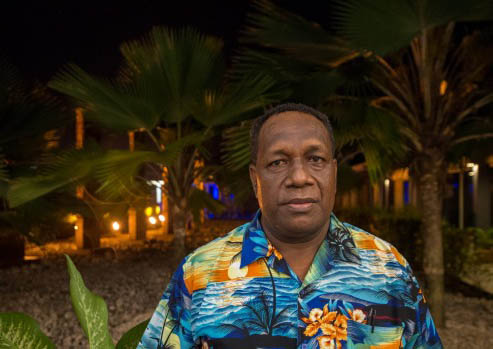
Adam Morton
HONIARA (The Age, Melbourne/Papua New Guinea Mine Watch/Pacific Media Watch): The new owner of a Solomon Islands gold mine has launched an extraordinary attack on the Australian previous owner, accusing it of leaving behind a $40 million environmental disaster and called for it to be shut down by regulators.
The claim has been vigorously rejected by the company, Melbourne-based St Barbara Limited, which says it left the country only after the Solomon Islands government thwarted its attempts to start repairing the Gold Ridge mine in the wake of a flood in April 2014.
It is the latest salvo in an 18-month stoush over the mine, which, when running, contributed about 5 per cent of the embattled country's gross domestic product but will now not be fully operational for at least another two years.
For about 3000 people who live in communities near the mine, it is playing out through the possible release into a local river of untreated water containing arsenic and cyanide.
The release of the contaminated water from a near-overflowing tailings dam has government approval, and is considered necessary if there is heavy rain before a new treatment plan is built.
Further afield, observers warn the dispute between St Barbara and authorities in Honiara will make it increasingly difficult for the country to attract the international investment needed to re-build its battered economy in the wake of ethnic conflict that has set it back decades.
The local landowner group, known as Gold Ridge Community Investment, paid $100 for the mine – and all environmental liability that comes with it – in a fire sale in May.
'Major failures'
Walton Naezon, chairman of the landowner group and an MP until last year's election, said St Barbara had left behind "major operational failures" including a damaged mine and treatment plant and a dam nearly full of untreated tailings.
He said the company should be shut by regulators for failing to meet the conduct required of a company listed on the Australian Stock Exchange.
"If the Gold Ridge mining project was in Australia the cost of environmental clean-up for St Barbara would be around $40 million," he said.
"I think they failed as a mining company, and did not have the knowledge to produce a better recovery after the floods."
St Barbara denied it had left behind any environmental damage at the site, about 30 kilometres south-east of the capital, Honiara.
The company evacuated the mine and its Australian staff during the April 2014 floods, which devastated the island of Guadalcanal, killing 22 people and leaving thousands homeless.
On its return – which was initially blocked by the government – it says it found a bridge had been badly damaged and hundreds of illegal miners were extracting gold from the open pit. It says a water treatment plant was destroyed by vandals twice.
Controlled release
In December, the company sought government approval for a controlled release of contaminated water into the Tinahulu River to avoid a catastrophic uncontrolled spill into multiple rivers.
The World Health Organisation advised the water was safe for washing, fishing and gardening, but not drinking and cooking.
The government refused. St Barbara placed ads in local newspapers warning there was a risk of a dangerous flood of the dam.
A St Barbara spokeswoman said the company spent more than $20 million trying to address the problem, but it was only after the company sold the company to locals that the government declared the area a disaster zone.
"It was nearly a year ago that we first started trying to get the necessary government approvals so we could urgently address the critical situation at the tailings storage facility," St Barbara's spokeswoman said.
"Fortunately, there has been no environmental incident, notwithstanding the prolonged inaction by the Solomon Islands government," she said. "We installed the new equipment required to dewater the mine and we are heartened that the new owners have been able to secure the dewatering approvals we were denied".
Naezon said the new owners had been required to buy about 100 water tanks for communities along the river in case a release was required.
He conceded the new owners did not know how to operate a gold mine, but said they were speaking to potential foreign partners. But it would be at least two years before the mine was operating at capacity.
Adam Morton is deputy editor of The Sunday Age.
This work is licensed under a Creative Commons Attribution-NonCommercial 3.0 New Zealand Licence.




